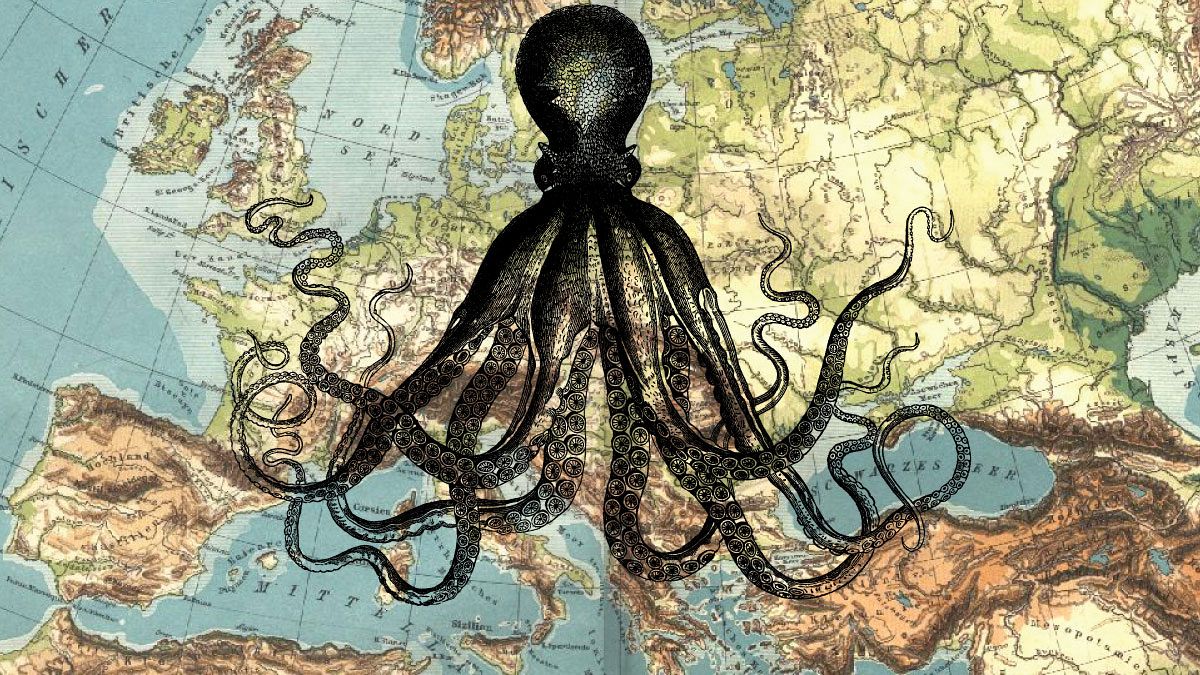Over twenty years after the murders of anti-Mafia judges Giovanni Falcone and Paolo Borsellino, the justice system is still trying to uncover some of the mystery that shrouds these mafia crimes. Now, a chilling new theory is emerging in Italy.
Sicilian Judge Falcone was targeted by a car bomb on 23 May 1992, along with his wife and three bodyguards. The mob had struck down one of its worst possible enemies – a scrupulous and incorruptible judge.
Just fifty three days later, it was the turn of Falcone’s friend Paolo Borsellino. He was murdered with five of his bodyguards in the Sicilian capital of Palermo. In 2008, the murder investigation was reopened when the man who originally confessed to the crime stated his innocence.
So did the Italian state form some sort of truce with the Mafia, to protect its judges? It’s also alleged Borsellino opposed this collusion, culminating in his death.
The new court process tried to throw some light on who killed the judge and if it had anything to do with any such “deal”.
In the dock are among others, Massimo Ciancimino. He gave evidence from his father, former mobster and Palermo mayor Vito Ciancimono to judges, which helped reopen the investigation.
Ex-Senator Marcello Dell’Utri is former Italian premier Silvio Berlusconi’s senior party advisor. He has already been convicted for complicity with the mafia, back in 2010.
Italian journalist and writer Roberto Saviano has long been aware of the mafia’s power to infiltrate any society, even beyond Italy’s borders. He told euronews:
“Today the criminal organisation primarily affects Europe. The German economy even the English or Spanish economies, for example, are deeply infiltrated by the mafia, without the governments of these countries letting their citizens know. The mafia is at present, mortgaging the future of our continent.
Now, against the backdrop of this new investigation and the notion of possible complicity between the Italian state and the mafia, the European Parliament has started to make serious inroads into addressing the issue of EU-wide organised crime.
The European Parliament has approved the Single Act drawn up by the European Anti-Mafia Commission over 18 months of work. For the first time, it contains detailed proposals to combat organised crime more efficiently at EU level. As the mafia exists in all Member States preventing the infiltration of EU institutions is also needed at EU level. Let’s watch this report, and then we’ll be talking to Sonia Alfano, the president of the European Anti-Mafia Commission.

“Talking to Euronews today is Sonia Alfano, the president of the European Anti-Mafia Commission. She is also an MP at the European Parliament, and aims to make the struggle against the mafia a priority for Europe. Welcome to Euronews.”
Sonia Alfano: “Thank you.”
Question: “Pan-European anti-mafia legislation would establish the need to combat organised crime at a European level. What has the mafia done in Italy that should not be repeated across Europe?”
Sonia Alfano: “The mafia in our country have devoured the economy and sadly, they have also damaged social consensus and civil society.”
Question: “Hitting the mafia’s wealth is a way of disarming them. In the anti-mafia legislation tax havens are seen as being refuges for mafia funds. How did Austrian colleagues at the Commission react?”
Sonia Alfano: “Not very well – but German colleagues also tried to find obstacles in the way of confiscating funds and goods because to them it’s important to defend the rights of suspects. But of course we all want to defend suspects’ rights, but although you have the suspect on one side, on the other side you have the victims and our need to guarantee the rights of victims must come first.”
Question: “You want to introduce stricter checks to identify bank account holders. Why? Because at the moment crooks are good clients of European banks?”
Sonia Alfano: “Absolutely, that why in the text we also asked for the abolition of banking privacy. Too often the banks have offered an excessive amount of privacy to organisations which have taken refuge there.”
Question: “What is the real risk that the mafia will take hold all over Europe?”
Sonia Alfano: “Sadly, the mafia is already in the control room when it comes to Europe. Sadly, the mafia have advance knowledge of what it happening, where it’s happening and who is taking the decisions. They have relations with people within all EU institutions, the European Commission, the Parliament, the Council, etc. When I talk about the mafia I’m not talking about the military wing of the mafia, the people who carry out assassinations, thefts, extortion. I’m talking about white collar mafia, who work within the institutions, in public administration, in all the institutional organisations which continually deal with the EU and who know what elvers to pull.”
Conclusion: “It is therefore important that anti-mafia legislation doesn’t remain on the back burner in Europe. Thank you, Sonia Alfano, for joining us today.”
